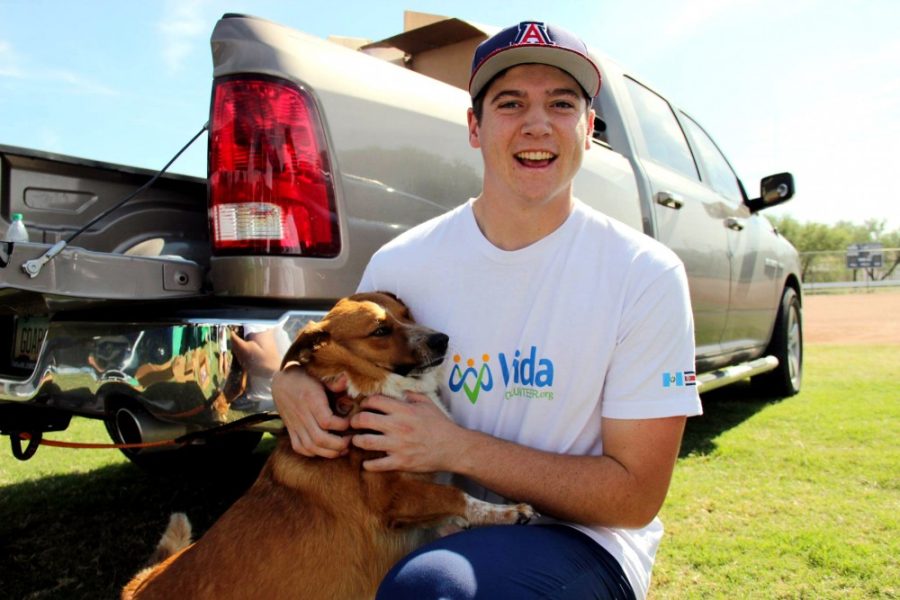For many Wildcats, summers are filled with summer school, vacations, internships and volunteering. What if students could do all of these things in the summer within the tropical climate of Central America? They can and in fact, some students do.
The UA Volunteers for Intercultural and Definitive Adventures club is set to depart this summer for a two week long adventure in Central America to volunteer, gain experience and spread awareness about healthcare and veterinary care by setting up free clinics in Nicaragua and Costa Rica.
VIDA is a non-profit organization that partners volunteers with doctors and communities in Costa Rica, Nicaragua and Guatemala to provide healthcare to and raise awareness in the communities.
The volunteer trips consist of three different teams—medical, veterinary and dental—that travel throughout the regions and set up free clinics to under-served communities.
The medical and dental teams set up clinics that provide basic healthcare and dentistry while also conducting home visits to talk with the community and promote personal hygiene and healthy living.
The veterinary team sets up free spay and neuter clinics and spreads awareness about the need for these alterations to battle over-population. The veterinary team also travels to rural areas to administer vaccines and vitamins to livestock.
The VIDA club is fundraising, collecting donations and developing the skills the volunteers will need on the trip. Even though the spring semester has already begun, the club is still looking for new members.
“It doesn’t matter what experience you have or what major you are, you can volunteer with any of the teams,” said veterinary science senior and VIDA club president Ashley Sanders. “No training is required by VIDA, but of course it’s nice to prepare ahead of time.”
The VIDA club meets every other week. The club’s meetings consist of guest speakers—often doctors and veterinarians—who answer questions and demonstrate physical exams. Other times, meetings are directed toward teaching club members the skills they will use at the clinics. These training days include learning how to measure vital signs on a patient, taking field trips to Pima Community College to learn how to perform a physical exam on a dog and learning basic Spanish.
Sanders has gained immense veterinary experience as a member of VIDA.
“The problems you find [in Central America] are unique to the area,” Sanders said. “You find conditions you do not see as often working in a vet clinic in the U.S. The uterus may be infected while assisting with a spay on a dog and many dogs have diseases from fleas and ticks. Livestock do not have very green pastures to graze on and therefore rely on the vitamins and supplements the volunteers bring.”
The trip provides a unique, hands-on experience that allows the volunteers to work alongside both medical and veterinary doctors while helping communities that need it the most.
Sanders said that her favorite part of the trip was working with the doctors.
“They were very clear, patient and it was nice because they were all bilingual so they were able to help the students communicate with the clients,” Sanders said.
Sanders explained that she became very close to the club members and VIDA doctors.
“Not only are you doing clinics with them, you are also traveling with them,” she said.
Along with gaining valuable experience as volunteer in Central America, VIDA members also enjoy days off in the tropical climates. Leisure days include activities such as white water rafting, visiting an active volcano and ziplining in the rainforest.









